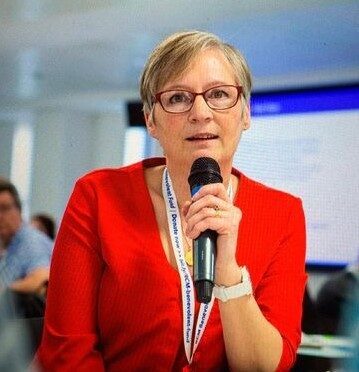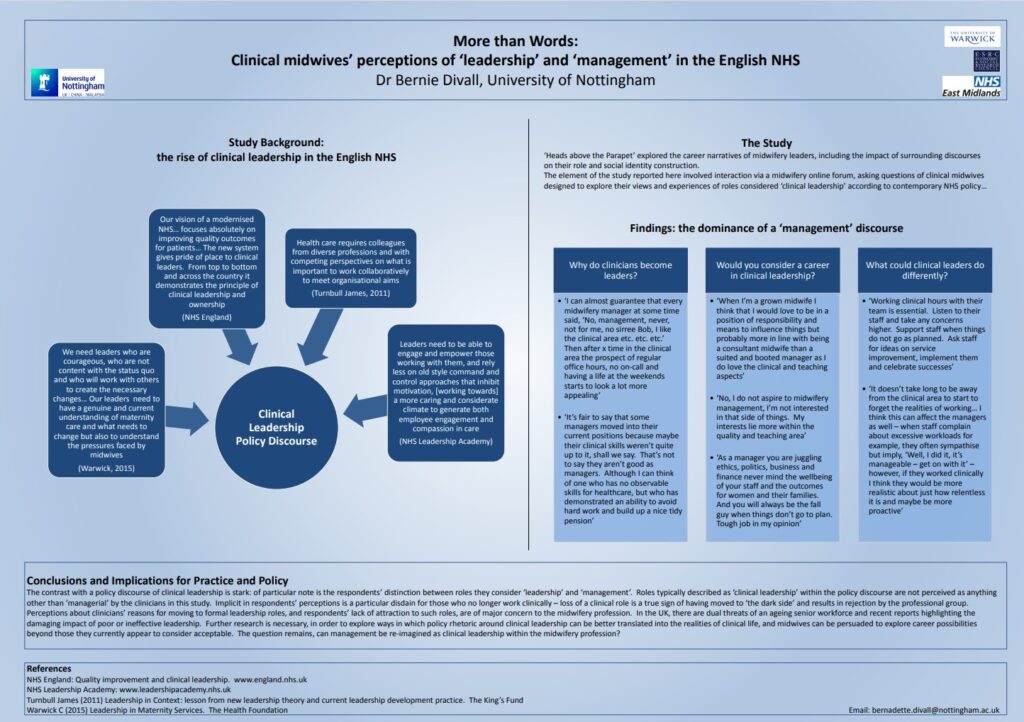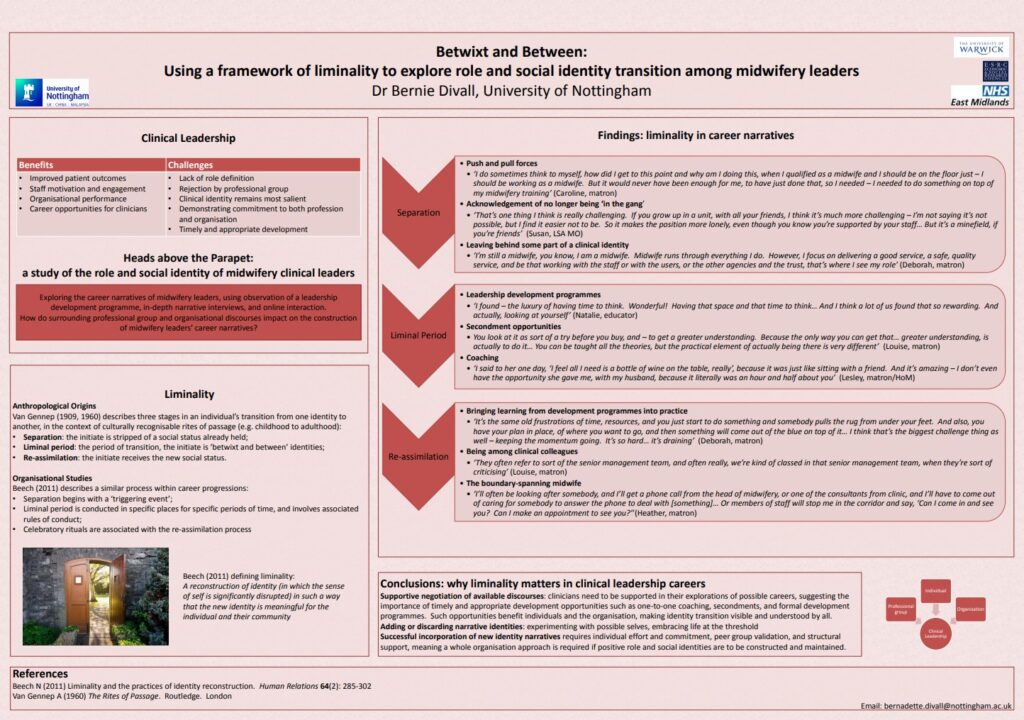This research was the subject of my Doctorate, which I completed in 2014. My question was, how do clinicians make the transition to clinical leadership roles, and what challenges do they face along the way and once in their formal leadership and management roles?
I undertook the study as a qualitative piece of work, using observation, in-depth narrative interviews, and online interaction. There was also a strong streak of reflexivity running through the work, as I was undergoing my own professional identity transition from life as a clinical midwife to ‘who knows where’ at the time!
On this page, you’ll find information about the various themes I identified during the study, with links to some of my publications and posters. If you want a really in-depth understanding of the research, you can access my Doctoral thesis via the University of Warwick’s Research Archive Portal.
The paper below concerns identity construction among the midwifery leaders I interviewed for the study, specifically their career narratives – including high and lows, opportunities and challenges, and thoughts about their future career direction:
So, what did I conclude at the end of my research, and how does it influence the work of Why Not? You’ll see from the links above that I identified several parallel strands in relation to personal development and group identity construction, and these have huge implications for how we develop our midwifery identity – whether that’s as individuals or as teams. This dual focus on the individual midwife identity and on the development of a shared professional identity is where Why Not came from: in developing leadership capacity and capability within midwifery, we need to be acutely aware of the sometimes unvoiced fear of losing our clinical identity, and the implications this may have in terms of a reluctance to take on formal leadership and management roles.
We also need to be able to challenge our own and others’ stereotypes regarding attitudes to leadership and management roles. As so many of my interviewees described, you don’t forget what being a midwife is – or what it means to you – just because you’re no longer working clinically. ‘Doing midwifery’ can mean many things in many contexts, and as a profession we need to be valuing and respecting the whole spectrum of professional identity and identification. The more we’re able to do this, the greater chance we have of developing the next generation of positive, proud midwifery leaders who do not fear that loss of identity, and the greater chance we have of our professional voice being heard at every level of healthcare organisations.



